Mastering Financial Management for Cohosts: From Workaround to Workflow
Cohosting has become a popular model in the Short-Term Rental industry, allowing individuals to manage properties without needing a broker's license in certain states. This article explores the evolution of cohosting, the unique financial responsibilities it introduces—like invoicing owners for management fees, reimbursements, and markups—and why dedicated financial tools are essential. We'll also break down the monthly financial workflow for cohosts and show how platforms like Clearing help streamline the entire process.
July 7, 2025
Corey
.png)
The Rise of Cohosting in Short-Term Rental Management

Cohosting has established itself as a vital and flexible model within the Short-Term Rental (STR) industry. Unlike traditional property management, which often requires a broker’s license—especially in many U.S. states—cohosting presents a solution for those who want to manage listings without navigating the full regulatory requirements of brokerage.
The reason is regulatory nuance.
In states where you must be a licensed broker to act as a property manager, collecting full booking funds directly from guests (and holding them in trust) is strictly regulated. Without a license, cohosts cannot legally pool rental revenue or client funds. Instead, platforms like Airbnb typically remit all booking funds directly to the property owner. The cohost’s role becomes one of service provision—managing the property, coordinating operations, and, crucially, handling accurate and compliant owner invoicing for their share of fees and expenses.
This regulatory workaround has empowered a generation of entrepreneurs to launch STR businesses. However, it also brings unique and complex financial responsibilities that differ markedly from both self-ownership models and licensed property management.
Financial Responsibilities Unique to Cohosts

As a cohost, bridging the gap between guests and owners involves wearing many financial hats. The absence of direct rent collection means your income isn’t automatically segmented—you must proactively invoice owners after each booking or on a monthly cadence.
What Makes Cohost Accounting Distinct
In the cohost model, financial management centres on accuracy and transparency, given:
- Invoicing Owners Directly: Instead of extracting your portion from the booking payout, you must send an invoice to the property owner for your management fee after each reservation or at agreed intervals.
- Passing Through Expenses and Markups: If you handle guest essentials, maintenance, or cleaning, you’ll need to track and bill these reimbursable costs. In some cases, cohosts may also add a markup to cover overhead or coordination—a legitimate income stream when transparently disclosed.
- Expense Recovery: Timely, well-documented expense submission to owners is crucial to avoid disputes or lost income.
Example:
Suppose a guest completes a weekend stay. Airbnb releases $1,200 to the owner, who receives the funds directly. The cohost must then issue a separate invoice—say $300 for the management fee, $120 for a cleaning team (plus any markup), and $50 for guest amenities. Each line item must be justified, traceable, and compliant with the owner's expectations and your contractual agreement.
This inverted flow of funds demands extra rigor in both bookkeeping and relationship management. Untracked or poorly organized charges can damage owner trust or even become unrecoverable revenue.
Why Dedicated Financial Tools for Cohosts Are Essential

Because cohosting arose as a workaround to brokerage licensing, many cohosts start by improvising—spreadsheets, email templates, and manual calculation dominate early-stage operations. However, as portfolios grow or relationships become more complex, this approach quickly reveals its limitations:
- Manual Errors: Spreadsheets are prone to entry mistakes, duplications, and omissions, leading to owner undercharging (or overcharging) and missed reimbursements.
- Delayed Cashflow: Without systematic invoicing, significant cash can be tied up waiting on owner payments for fees or expenses.
- Limited Transparency: Owners expect detailed, itemized statements—something hard to produce manually at scale.
- Audit Challenges: Tax time or owner audits require a clean, defendable trail of all fees, markups, and reimbursements.
Purpose-built platforms like Clearing address these pain points by automating, documenting, and reconciling every invoice and transaction. Cohosts can link their bank accounts and payment platforms, seamlessly allocate revenue, automate invoicing, track reimbursable expenses, and generate owner-ready cohost specific statements—drastically reducing administrative overhead and boosting owner trust.
The Cohost Monthly Financial Workflow: From Chaos to Clarity
To thrive and scale as a cohost, you need a repeatable and well-controlled financial workflow. Here’s how leading cohosts approach it:
Step 1: Gather All Booking and Payout Data
Reconcile owner payouts received (typically from Airbnb, Vrbo, or direct bookings) with your property calendar to ensure all stays are accounted for.
Step 2: Collect and Categorize Expenses
Aggregate all operational expenses for the month—cleaning, repairs, supplies, utilities—using receipts and clearly noted vendor details. Allocate any markups or service charges agreed upon in advance with the owner.
Step 3: Prepare Invoices
Create itemized invoices showing:
- Management/hosting fees by property or stay
- Reimbursement requests (with receipts attached)
- Markups transparently listed
- Due date and payment instructions
Step 4: Issue Invoices and Track Receivables
Send invoices to owners promptly, ideally integrated with payment platforms for convenient online payment. Monitor open invoices and follow up on late payments to maintain healthy cashflow.
Step 5: Generate Monthly Owner Statements
Compile a comprehensive statement including: all bookings, owner payouts, management fees, reimbursed expenses, and the outstanding balance (if any).
Step 6: Reconcile and Archive
Match invoices paid with your bank activity for full reconciliation. Archive all statements and receipts for tax and audit purposes.
Historically, each of these steps demanded significant manual effort. Missing, mis-categorized, or late invoices could easily result in lost revenue or friction with owners.
How Platforms Like Clearing Streamline Cohost Financials

Modern financial management platforms have reinvented the above workflow—transforming cohost accounting from a patchwork of spreadsheets into an integrated, automated system.
What Cohosts Gain with Clearing
- Seamless Booking Integration: Connect to Airbnb and other booking platforms for automatic data import.
- Automated Invoicing: Build, send, and track owner invoices with management fees, expense pass-throughs, and markups included.
- Integrated Expense Management: Upload receipts, allocate costs per property, and ensure nothing falls through the cracks. Advanced automation capabilities can be implemented by working with Clearing's preferred expense management tool, Ramp. [Make sure to sign up on Clearing's official Ramp partner integration page to claim your $500 sign up bonus].
- Owner-Ready Statements: Generate fully itemized statements that can be sent directly to owners—building professional trust and reducing the need for manual reconciliation.
- Real-Time Reporting: Review income, reimbursements, and outstanding receivables at a glance.
- Easy Audit Trail: Every transaction, invoice, and payout is archived and accessible, simplifying both owner audits and tax preparation.
With all these features combined, platforms like Clearing empower cohosts to spend less time on bookkeeping and more time on delivering exceptional guest experiences and building their portfolio.
Conclusion: Building a Scalable, Trustworthy Cohost Business
The evolution of cohosting represents both an opportunity and a responsibility. To excel, cohosts must master unique billing, expense, and transparency obligations—not just work around them. Dedicated financial technology, purpose-built for the STR sector, is now a requirement, not a luxury.
If you’re ready to move beyond manual workarounds and establish a professional, scalable workflow for your cohost operations, it’s time to leverage proven financial tools.
Book a free, personalized demo of Clearing to see how you can automate invoicing, streamline expense recovery, and deliver unparalleled clarity to owners—unlocking the next phase of your cohosting journey.
Clearing is a Financial Technology Company, not a bank.

.png)
.png)




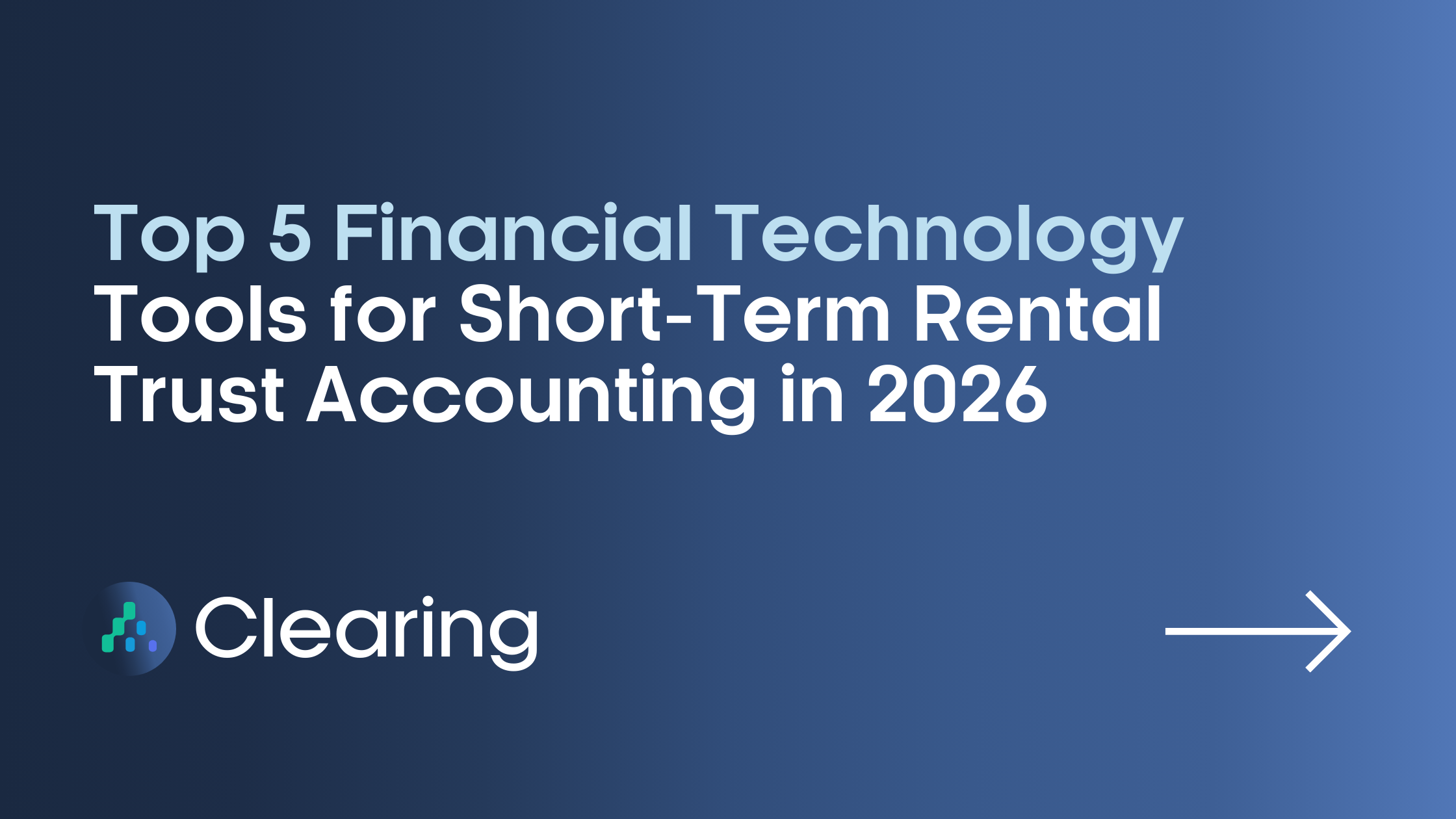

.png)
.png)
.png)
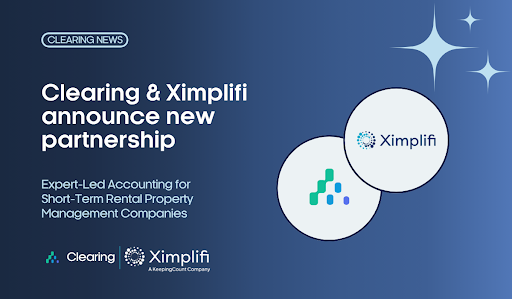
.png)
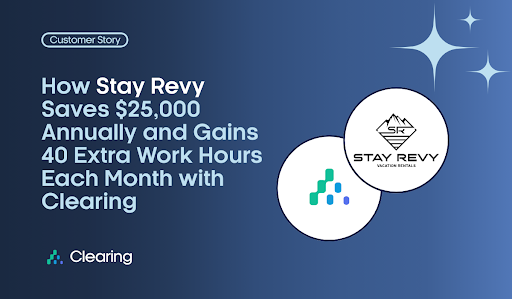
.png)
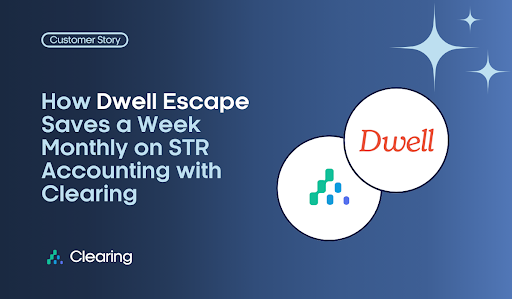
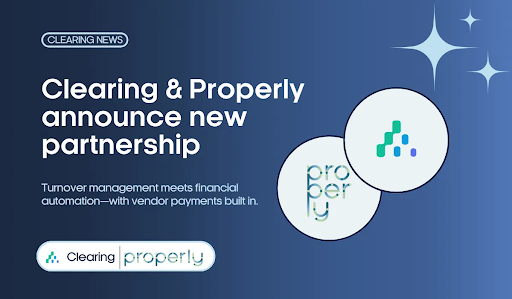
.png)
.png)
.png)
%20(1).png)
%20(1).png)
%20(1).png)
.png)
%20(2).png)
%20(1).png)
%20(1).png)
.png)

.png)
.png)
%20(1).png)
.png)
.png)
.png)
.png)
.png)
.png)
.png)
%20(1).png)
.png)
.png)
.png)
%20(1).png)
%20(1).png)
%20(1).png)








.jpg)
%20(1).png)
%20(1).png)
%20(2).png)
%20(1).png)

%20(1).png)
%20(1).png)
%20(1).png)



%20(1).png)
%20(1).png)
%20(1).png)
%20(1).png)
%20(1).png)


%20(1).png)
%20(1).png)
%20(1).png)
%20(2).png)
%20(2).png)



%20(2).png)


%20(2).png)
%20(1).png)
.png)


%20(2).png)
%20(2).png)

.jpg)
.png)
.png)
.png)


